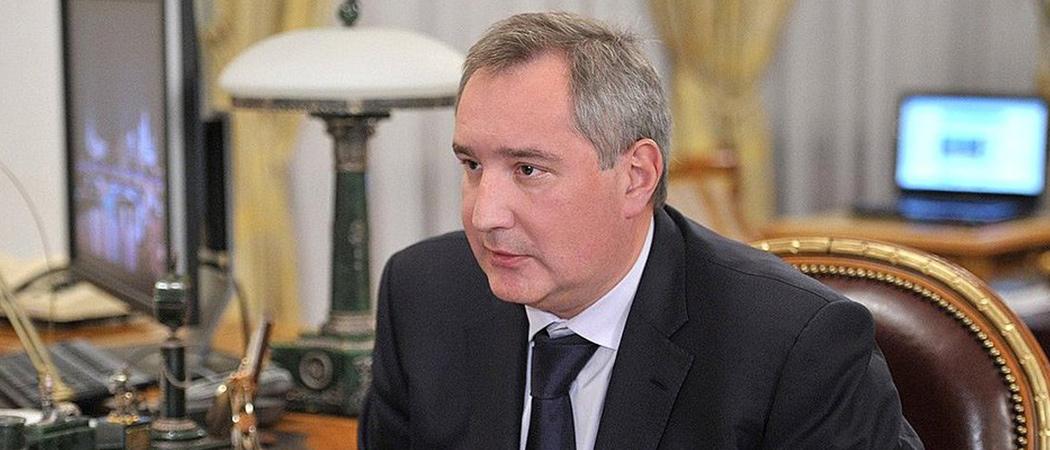Russian space agency makes threats and says it will allocate ‘unprecedented’ resources to its own space industry – but Western officials are assessing the impact

Dmitry Rogozin, Director General of Roscosmos. Photo: kremlin.ru
The future of international space cooperation is being put to the test, as tensions mount between Russia and the rest of the world.
Since the Ukraine war began, a series of long-standing joint space efforts have come into the political firing line – with Russian space agency Roscosmos firing off threats about the International Space Station, and Russian cooperation with UK space company OneWeb. In the latest development, on 8 March Roscosmos head Dmitry Rogozin announced his agency will allocate “unprecedented” funding to private Russian space companies. Further, he said, the Soyuz-2 rockets which were supposed to be used to launch OneWeb equipment will now help Russian companies send equipment in space.
“By the end of the year, dozens of private Russian spacecraft for communication, meteorological observation and remote sensing of the Earth will be sent into orbit,” he said.
Western officials, however, have mostly been trying to keep the space rhetoric cool. The National Aeronautics and Space Administration (NASA) said it continues to work with Roscosmos to ensure the safe operation of the International Space Station. Rogozin had suggested the ISS could fall out of the sky without continued Russian support.
Rep. Don Beyer, the chair of the space and aeronautics subcommittee in the US House of Representatives, told Science|Business that the ISS partnership between US and Russia was able to withstand geopolitical challenges in the past, and he is optimistic the two countries will be able to do so in this situation also.
“Russia’s illegal and unprovoked invasion of Ukraine has led to heartbreaking loss of life, but as policymakers we also must carefully consider the conflict’s implications for our civil space activities,” said Beyer.
Economic sanctions imposed by the EU and the US banned the export to Russia of any communication systems, electronics, semiconductors, as well as aviation and space components, making relations between the Russian space agency and partners across the world very difficult.
Roscosmos is the main successor to the space programme of the former Soviet Union and many international space missions have been using their Soyuz rockets.
With the new sanctions in place, Rogozin said he would cancel all launches of the UK space company OneWeb powered by Russian rockets, unless the company was able to guarantee it would not use its planned mesh of small telecommunications satellites for military purposes. OneWeb promptly announced that it will suspend all launches from Russia’s Baikonur launch platform in Kazakhstan. The satellite internet company is now looking for alternatives to send hundreds of small satellites to orbit.
Waiting on EU’s new rockets
The ExoMars mission is another joint project between the ESA and Roscosmos which has been delayed due to the war. And Germany has also turned off its eROSITA telescope which is part of Spektr-RG, a joint space observatory with Roscosmos.
Last week, France’s National Centre for Space Studies (CNES) announced it ensured “a rapid, safe and orderly departure of Russian engineers and technicians” from its Guiana launch base, after Roscosmos suspended Soyuz flights from the French launching station and called back all its workers. The Russian agency has already confirmed a group of 85 engineers and technicians at the Guiana Space Center have returned to Russia.
CNES is now assessing its next steps. “The sanctions imposed by European governments and recent announcements from the Russian space agency Roscosmos are significantly impacting space programmes on which CNES is working with Russia,” the agency said in a statement.
The Guiana Space Centre has been using a Russian Soyuz launcher under an intergovernmental agreement since 2011. But, after Russia suspended its Soyuz flights scheduled to orbit Galileo and CSO-3 satellites this year, CNES is already looking for alternatives.
The space port in Guiana is being used mainly for launches of the European Space Agency (ESA). The agency has been developing its own launchers, with the newest versions Vega-C and Ariane 6 expected to hit the market soon. CNES says the new launchers will help reschedule Europe’s planned space missions.
“Many difficult decisions are now being taken at ESA in consideration of the sanctions implemented by the governments of our member states,” ESA director general Josef Aschbacher said in a statement.





 A unique international forum for public research organisations and companies to connect their external engagement with strategic interests around their R&D system.
A unique international forum for public research organisations and companies to connect their external engagement with strategic interests around their R&D system.